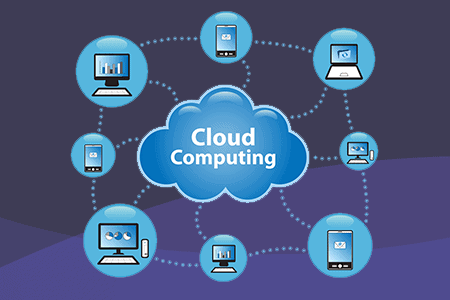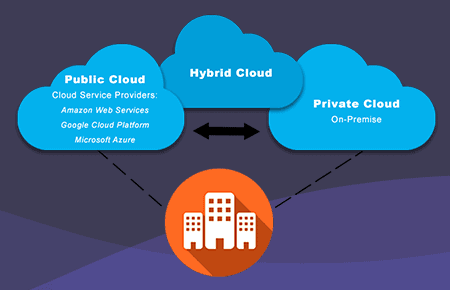The main thing everyone wants to know when they’re considering upgrading their business or personal needs is “what are the benefits of cloud computing?” It’s a fair question when you don’t really know the ins and outs of the technology and think it might be a royal pain to get set up (it’s not).
Let’s jump right into it. As you read you’ll see just how versatile the advantages that you’ll gain are.
[displayAd]
Benefits of Cloud Computing
These advantages are not listed in any particular order, except maybe in the most obvious to the least:
1) On-Demand Scalability
As we’ve harped on in our “What is Cloud Computing?“, the main attraction of the cloud is instant scalability. In most hosting scenarios, we pay for higher tier packages that we don’t need 95% of the time, but keep around for those 5% scenarios when we get a sudden burst of traffic. Waiting till the last minute can spell disaster if you aren’t using a cloud.
But with a cloud, you can either request more resources and have them allocated to you immediately or allow the system to provide these resources as needed without your intervention. And due to the utility pricing mentioned below, you don’t have to worry about getting slammed with a huge bill.
2) Access From Anywhere & Any Device
No matter who you are or what you spend, a fundamental aspect of the cloud is that you can reach your data from anywhere on the planet as long as you have the log-in credentials and a connection to the internet. It doesn’t matter if you’re on a laptop, desktop, tablet, or smart phone and are on wireless or a mobile connection.

Not only can you get to your data but due to the distributed computing, your data will arrive to you faster than it would if it was hosted on a single, traditional server. Low latency can make or break business deals and can make sure you can show your friends pictures of your baby or dog quickly on a night out. Everyone reaps the benefits.
3) Lower Costs Due to Utility Pricing
Cloud costs aren’t based on tiers of packages offered arbitrarily by the provider. It’s based on utility pricing, just like your electricity bill. You pay only based on consumption, meaning your overall costs are usually drastically lower than you’re used to paying.
It works the same way for scaling resources on the fly. If you have an article or video go viral, the best cloud hosting will automatically provide as much bandwidth and memory needed to make sure all of the new users can access your data. You’ll spend less money to make more. This advantage cannot be under-emphasized.
4) Managed Infrastructure & Platforms
A big deal for those of us in IT departments or as web developers is that we not only do not need to install the software needed to act as a platform for the work we do, but the companies also maintain it all. They update it, patch bug fixes, upgrade to newer versions for us.
You could do absolutely nothing and your SaaS application or website could become faster and more secure for your users, simply because the cloud providers are upgrading your PHP versions and handlers, optimizing your databases, installing new WHM packages, etc. These types of benefits often go unseen but are huge, especially for businesses.
[displayAd]
5) Disaster Recovery & Redundancy
The worst thing ever is losing all of your digital family photos, your music catalog, your video archives, or even worse, all of your business data. Cloud providers not only back up your data (often daily or hourly), allowing you to recover from a data disaster, whether that’s a server going down or a mistake on your end. If it’s on their end you won’t even hear about it or have a disruption.
The reason for that is distributed storage and redundancy. Not only is your data spread out across many servers to share the burden of the resource demand, but it’s also duplicated several times over. Redundancy means having several backups in various physical locations to reduce the risk of losing your data permanently to almost a zero percent chance, unless there’s some global disaster. Not having to set this up yourself is priceless, and having it in place is worth everything.
6) Operational Speed
We mentioned scaling resources and the installation and updating of software platforms. We talked about how everything can become faster as the providers keep you updated with the newest technologies. It’s not just that though.
Companies can add new users to their networks, remove others, deploy new software like an internal chat system in a heartbeat, test new ideas without the ramp-up time of installing all of the underlying infrastructure. If you need it, it’s already there and ready to be used, saving you tons of time in every facet of your operation.
7) Increased Security
There are several types of cloud deployment that can be used. The public cloud is pretty similar in security levels to the standard web. If you have the password and can answer the security questions or authenticate the log-in attempt, you can get in. A private cloud is an entirely different story and this is where security shoots through the roof while letting businesses maintain the benefit of outsourcing their IT needs.

Private clouds are isolated from the public. They can be hosted at a 3rd party location or at the local premises of your business. But not only are they separated digitally and physically, but if your requests don’t originate from the pre-approved network they are denied entirely. And you still need log-in credentials! Businesses can reduce complexity by using a hybrid cloud too, which is a mixture of a public cloud and a private one.
8) Flexibility of Deployment
As mentioned above, there are types of deployment that can be used. The hybrid style illustrates this the best. A company may have a non-sensitive public cloud to host their emails, chat applications, spreadsheets, data analytics, etc.
But then they’ll also have a private cloud that is holds their most sensitive data, safely away from the prying eyes of hackers and competitors. There are also legal reasons that force companies in certain industries to do this, and being able to have a hybrid setup makes things so much easier for everyone involved.
9) Colleague Collaboration
Being able to speak with your fellow colleagues through email and chat, share files hosted on the same cloud, and enjoy all types of transparency safely removes so much friction from performing business work. Think of internally installed software like Gmail, Slack, Skype, and Trello.
It doesn’t matter the time-zone, who’s working from home that day, what device they’re using. Everyone is in touch and on the same page. This boosts productivity and increases the profits for the company, leading to raises and bonuses for the employees. Why wouldn’t you use this type of system?
10) Far More Green
This last advantage is good for all of us, and by that I mean every living being on the planet. By being far more efficient in resource scaling and usage, the cloud ultimately ends up allowing us to use for less electricity. That cascades out to electricity generation, which can have quite the toll on the planet. Reducing our carbon footprint is a must these days, and the cloud enables this to be done.
[displayAd]
Conclusion
Though we’ve listed 10 benefits of cloud computing, you could surely come up with more. But the important part isn’t the number, it’s how much the items in this list improve our personal and work lives. The advantages we extract from the cloud are nearly priceless, from as small as getting us our data faster to as big as reducing pollution. The cloud simply cannot be beat by any less evolved methods of computing.
